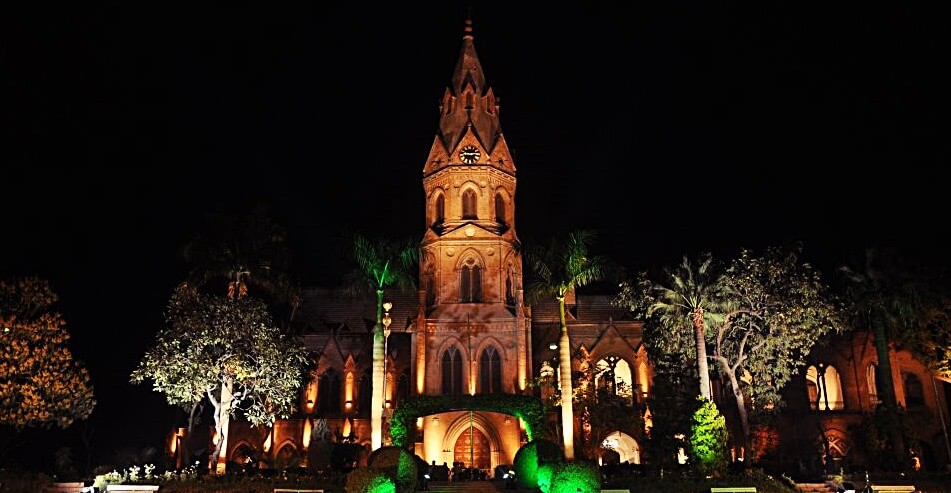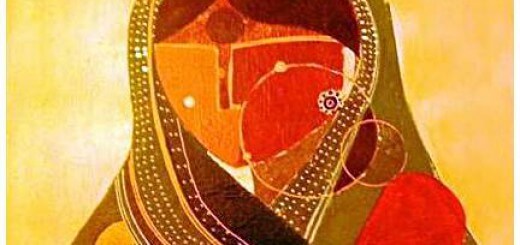The Ravi: GC University Lahore: Letter from Editor Jibran Riaz
With eyes that have courage, intolerance is what one must see. Indeed, acceptance of other cultures is healthy. And healthier still when one does not hesitate to criticize one’s own culture, but must not we lose sense of direction when the wisdom of our heritage in history and in literature is frequently avoided? Internationally, nationally, and locally, we have seen all too many examples of intolerance. When man has so much in common, why must he interpret the meaning of his existence so differently from others? Why must faith in human integrity and veracity of life betray us? Why is it that we are so reluctant to see the complete man, to feel that mind and body constitute a single being, to know that our actions are similar, as are our responses? And why have we forgotten the delight of contentment?
I would like once again to return to the issue of technological advancement. Where a number of volumes of Britannica are reduced to a single compact disc, we are left with wonder and awe. We develop a sense of lack of control at this quick progress. This sense of wonder and awe should also be left for Nature, for Art, for language and its beauty, for inspiration out of legacy, history and heritage, and for insights offered to us by great literature. We ought to utilize the scientific advancements wisely to get rid of the problems we are already facing.
Human consciousness, certainly, is not a product of complex processes in the brain and the Universe no rat in the lab which can be experimented, manipulated and tested upon in a number of ways as long as it provides all knowledge. I can not help admiring Lawrence for his ceaseless disgust of the mechanistic world. This poly-dimensional world must not reduce man to a mechanical object merely, especially when he is dependent more upon artificial intelligence. No matter how facile it is for us to take advantage of the benefits of science and technology, there remains, and shall always remain, a deep and vital metaphysical nexus between each of us, and this is what makes life worth living. Awareness of this fundamental is, positively, then the neglect of humanities. The scientific and spiritual have gone a long way and they must need part here.
With eyes that have courage, intolerance is what one must see. Indeed, acceptance of other cultures is healthy. And healthier still when one does not hesitate to criticize one’s own culture, but must not we lose sense of direction when the wisdom of our heritage in history and in literature is frequently avoided? Internationally, nationally, and locally, we have seen all too many examples of intolerance. When man has so much in common, why must he interpret the meaning of his existence so differently from others? Why must faith in human integrity and veracity of life betray us? Why is it that we are so reluctant to see the complete man, to feel that mind and body constitute a single being, to know that our actions are similar, as are our responses? And why have we forgotten the delight of contentment?
I would like once again to return to the issue of technological advancement. Where a number of volumes of Britannica are reduced to a single compact disc, we are left with wonder and awe. We develop a sense of lack of control at this quick progress. This sense of wonder and awe should also be left for Nature, for Art, for language and its beauty, for inspiration out of legacy, history and heritage, and for insights offered to us by great literature. We ought to utilize the scientific advancements wisely to get rid of the problems we are already facing.
Human consciousness, certainly, is not a product of complex processes in the brain and the Universe no rat in the lab which can be experimented, manipulated and tested upon in a number of ways as long as it provides all knowledge. I can not help admiring Lawrence for his ceaseless disgust of the mechanistic world. This poly-dimensional world must not reduce man to a mechanical object merely, especially when he is dependent more upon artificial intelligence. No matter how facile it is for us to take advantage of the benefits of science and technology, there remains, and shall always remain, a deep and vital metaphysical nexus between each of us, and this is what makes life worth living. Awareness of this fundamental connection takes us way beyond the confines of the physical everyday life and has a lot to do with aesthetic experience.
No matter how fast the world changes, and no matter how close the political and economic integration gets, people would always remain conscious of their identities: national, cultural, and social. Perhaps, hanging onto our cultural roots is one way of preserving our identities, and consequently our civilizations. It might delight the gentle reader to know that in France, the curriculum for all students doing the baccalaureate obliges them to study major works in all the genres of literature! Ils sontfiers de leur heritage culturel.
There are great dangers in following what we are following fashionably. We will simply end up as culturally disinherited people. It is my conviction that the reader feels the same, and if this is so, what could be worse. A tree without roots cannot stand on its own, is listless, and dead. Education must aim at preparing individuals in the best manner for the challenges ahead, and not at producing socially engineered products. This can only be done when one starts to differentiates between mere acquisition of knowledge and making it a part of life in understanding and hitting at the real meaning of existence.
A proper knowledge and understanding of our history and the best of our wonderful literature play a key role in helping us understand our national and cultural identity. There is something about the extreme technical ease of modern life, about the effortlessness and speed of modern communication, which seems to encourage frivolity, shallowness, and a sense of lack of fulfillment. We might become more knowledgeable but we certainly do not become more civilised or wiser. It is my conviction that literature, the common inheritance, can help us regain the paradise lost. It is not only for those who have the ability to write, it is for everyone, for it is about everyone. Access to it is the basic human right which a civilised nation must safeguard.
Truly educated people, and this is what our college has tried to produce for a century and a half, know very well that science and technology make this world a better place to live in. But if we are to be worthy of it, we have to cultivate the ability.

 g
g












